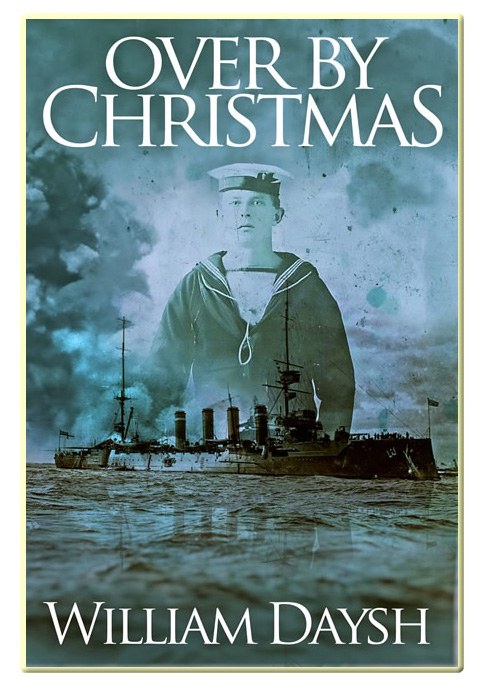
Review by Helen Ross for The Levante Journal
“War books and books about war are not particularly popular with women readers, but I have to confess that the storyline of this novel had me intrigued. I’m glad I read Over By Christmas by William Daysh. Of course the title refers to the phrase used at the start of the First World War; sadly, those hopes were greatly optimistic and the conflict lasted four years, claiming thousands of lives. So many lives. In a brave and bold attempt to reflect those lives and times, William Daysh has examined a number of real life people and imagined other fictional characters, blending them into an engrossing novel about cataclysmic events.
Some two years before the outbreak of war, Prime Minister Asquith, 59, fell in love with 24-year-old Venetia Stanley. Married and a father of five, Asquith confided state secrets to Venetia. Alongside him were politicians and military leaders whose bickering and antagonism towards each other simmered and often affected the decision-making process during the war. Among these were Churchill, Admiral Fisher, Lord Kitchener, Bonar Law and Lloyd George. Naturally, the common soldier and sailor sent to fight the politicians’ war were oblivious of the in-fighting and preening self-importance of their leaders. Which was just as well, for morale if not for the war itself.
One family who went to war was the Royals. George followed in his father’s footsteps, joining the Royal Navy as a gunnery rating. The naval town of Gosport is brought to life, as are the hardships of serving at sea. Comradeship counts for much in those battleships. Time ashore is savoured and George spends much of it with his best mate, Bill, a tradesman who was deemed unfit for service. It is during one of his visits that he meets Bill’s live-in girlfriend, Carrie, who is an unwed mother.
The scene is set for a love triangle. Carrie and George don’t hit it off at first; perhaps they’re both jealous of the other stealing time from Bill. Anyway, Carrie has high hopes to better herself, for the sake of her baby Kate. She goads Bill into expanding his business; supplying food to the armed services could be very profitable.
Before any kind of relationship can be sorted for George, his ship is called to the South Atlantic to avenge a bitter naval defeat under the guns of German Admiral von Spee’s heavy cruiser Scharnhorst. The Falklands – one of several Royal Navy coaling stations – was a vital cog in the British Empire; without such depots, the RN could not command the seas and protect the vast number of merchant vessels from all four corners of the globe. George’s ship was sent with utmost despatch.
It seemed that no sooner was that action successfully concluded than Churchill, Admiral Fisher and the Prime Minister concocted a scheme to invade Turkey through the Dardanelles, thereby breaking through to relieve Russia. Little did they realise that this Gallipoli campaign would have dire consequences for more than one political and service career. George’s ship was sent to the Dardanelles, where he would be involved in a landing party and life-and-death situations. Inevitably, Carrie and George are drawn to each other, but life is not going to be simple for this ill-starred couple, it seems…
Daysh manages to juggle several balls with assurance during the narrative. The conditions at the home front are well depicted and the emotions of Asquith’s wife, Churchill and the confused Venetia are realistically conveyed. The narrative is aided by the inclusion of excerpts from Asquith’s letters to Venetia – he tended to write at least once a day to her. The battles at sea, and the rise of ungentlemanly submarine warfare, are recreated in suspenseful and taut prose. The bickering between Churchill, Lord Fisher and Kitchener make grim reading when it is realised how many lives are at stake. At one point, it is mentioned that the loss of ships is causing concern – they’re hard to replace, whereas men are plentiful. Saved for the closing chapters, there is an intriguing revelation from Carrie’s past that puts much into perspective.
All in all, Daysh has got the balance about right. We learn of Asquith and his ultimately deleterious infatuation, his peers and faulty decision-makers; we share in the trauma and loss of conflict at sea and on the Turkish peninsula; and we empathise with those left at home to pick up the pieces and make something of their lives during a period of grey austerity. Everybody seems to realise that no matter what the outcome of the war – and by the book’s close, the conclusion is not certain – nothing will ever be the same again. There’s a useful bibliography at the back of the book.
Recommended.”
Helen Ross, October 2008